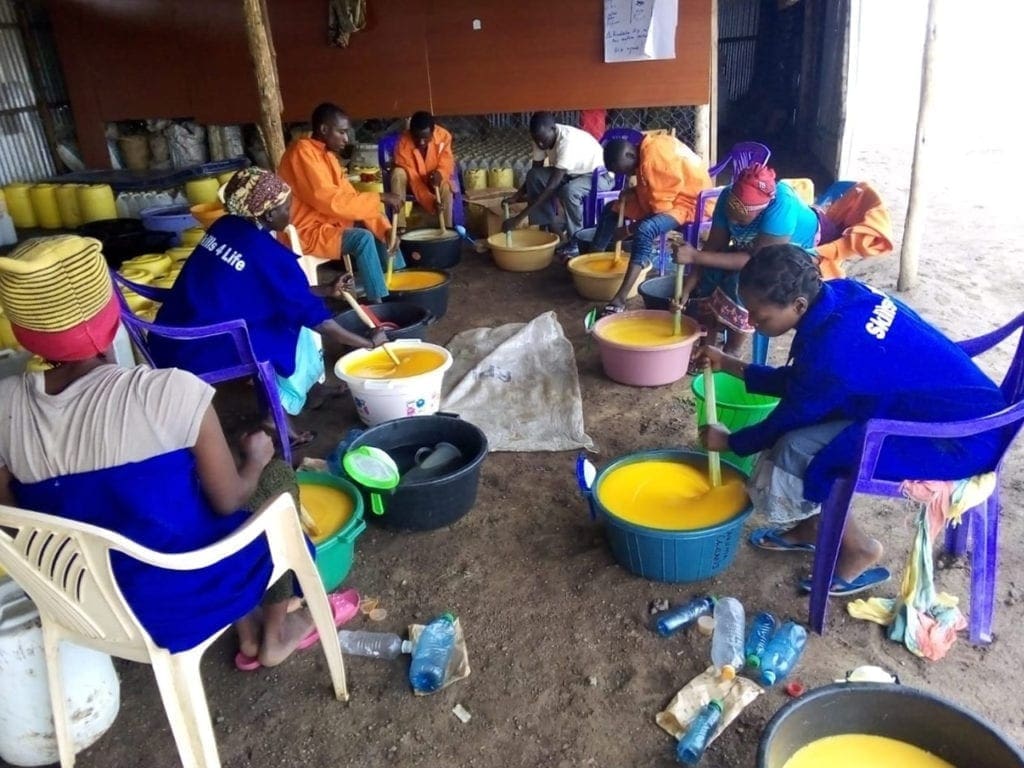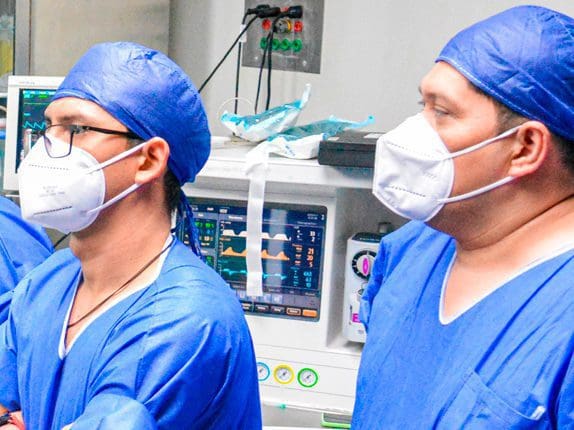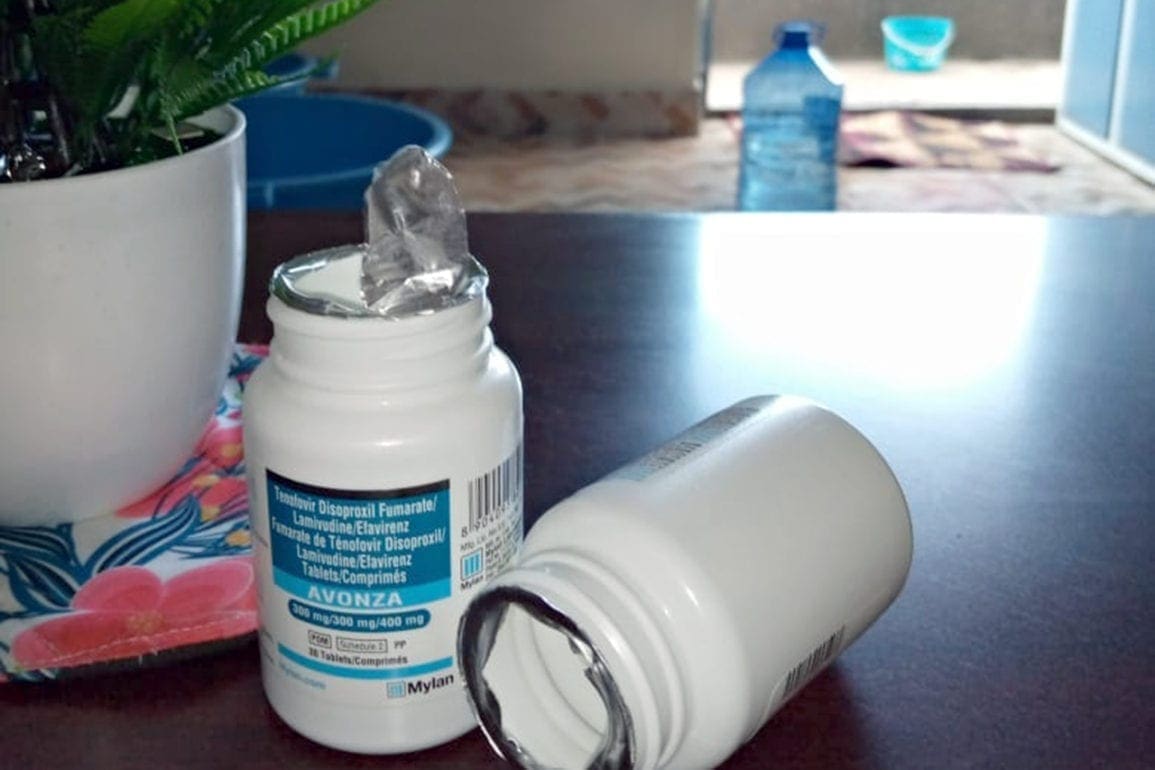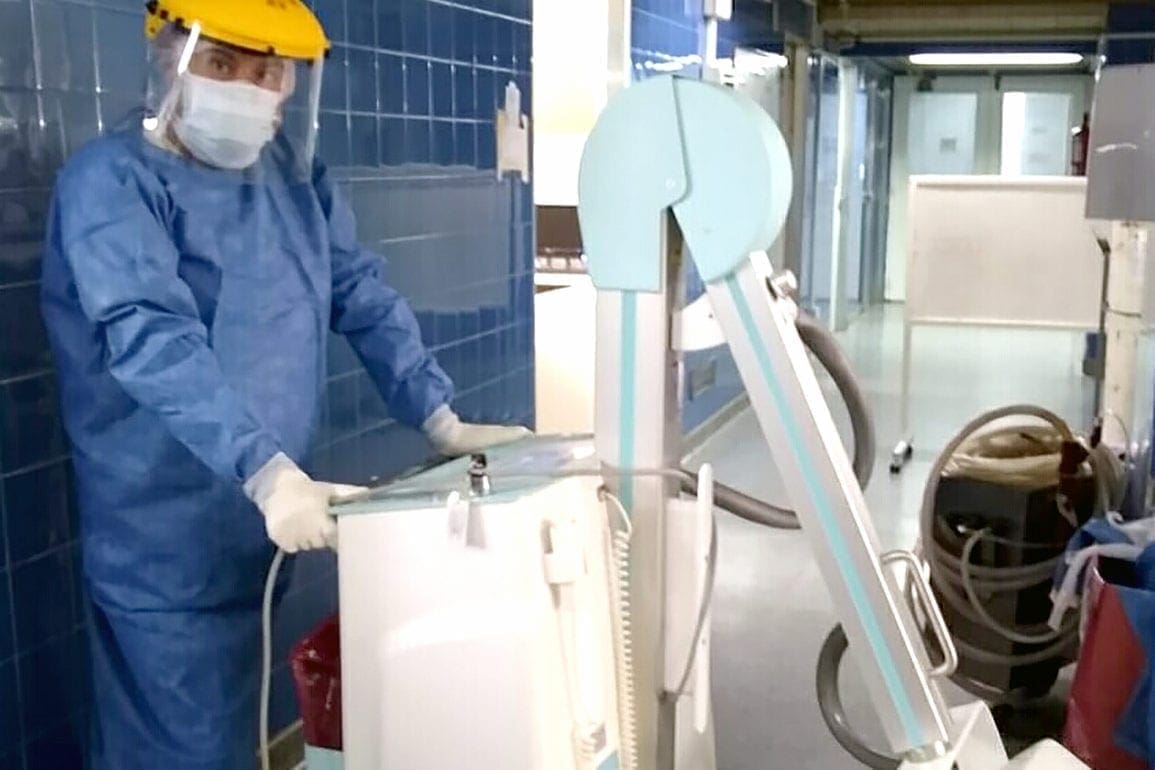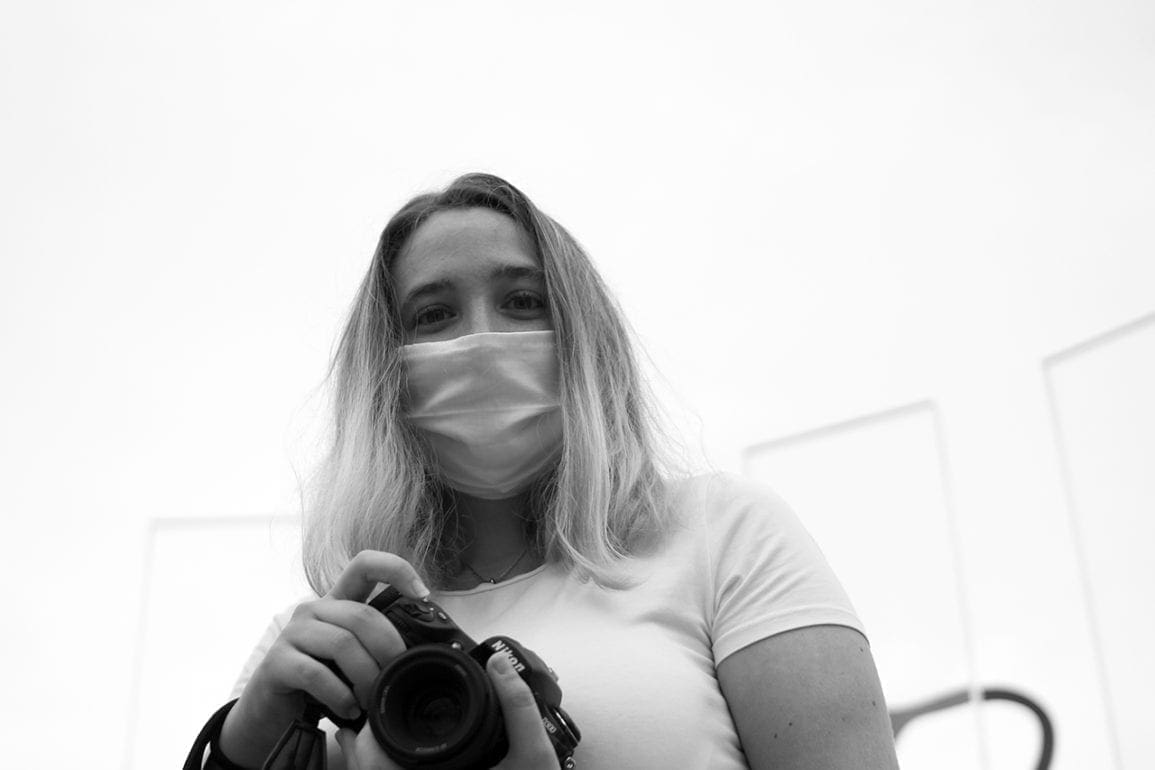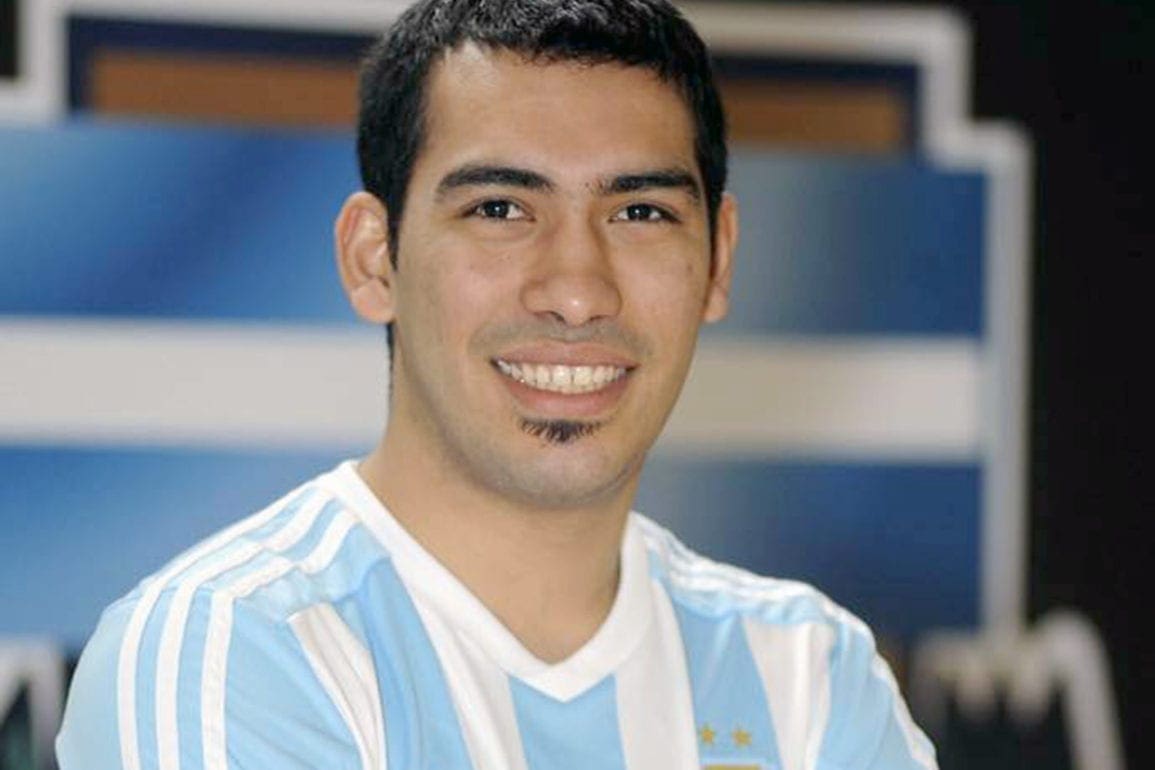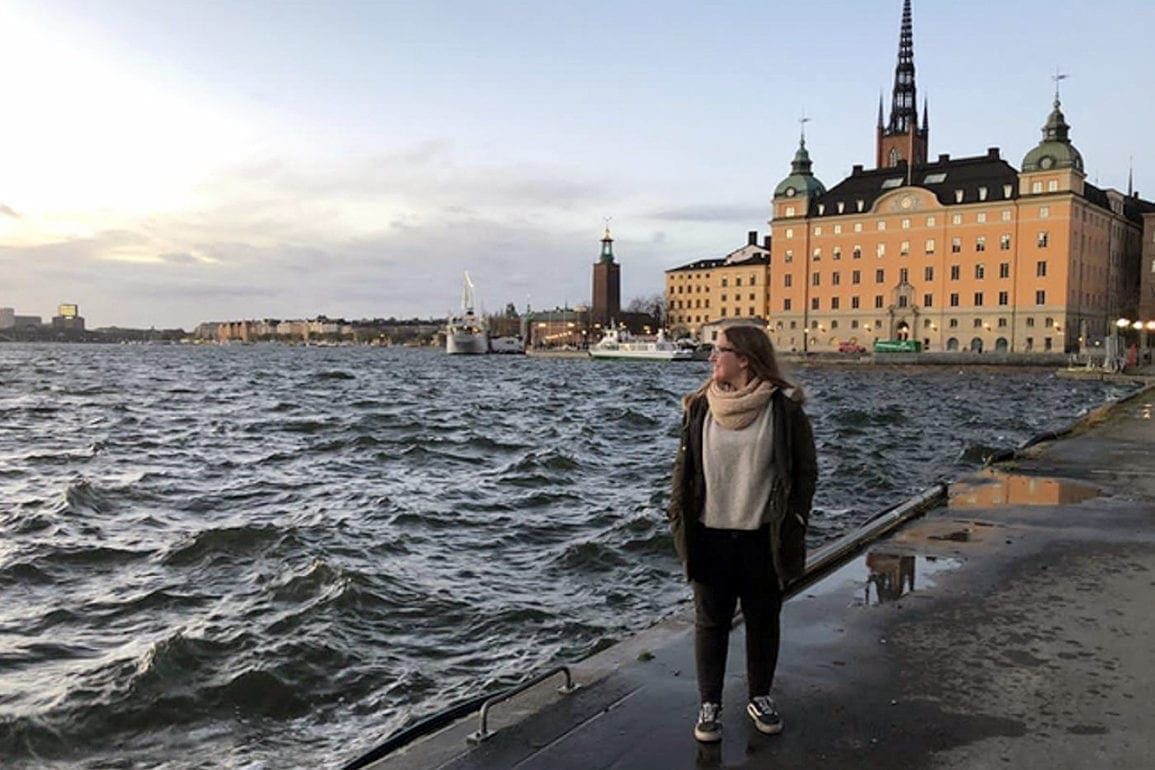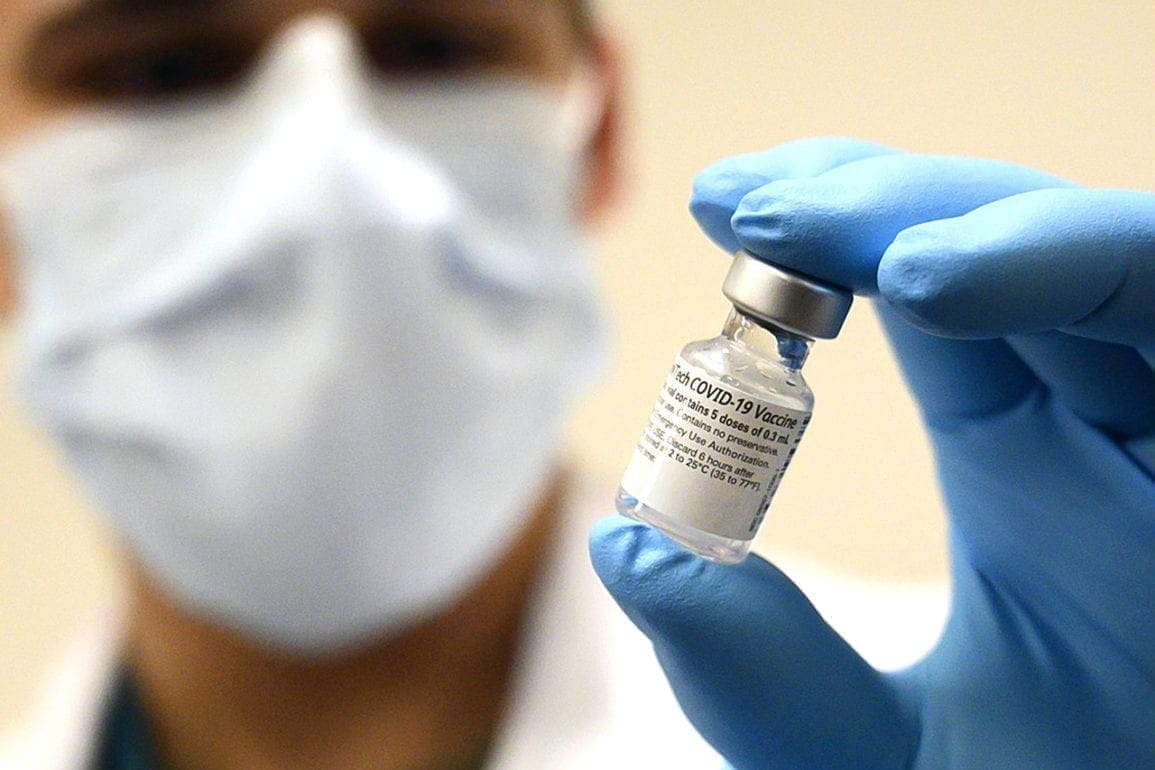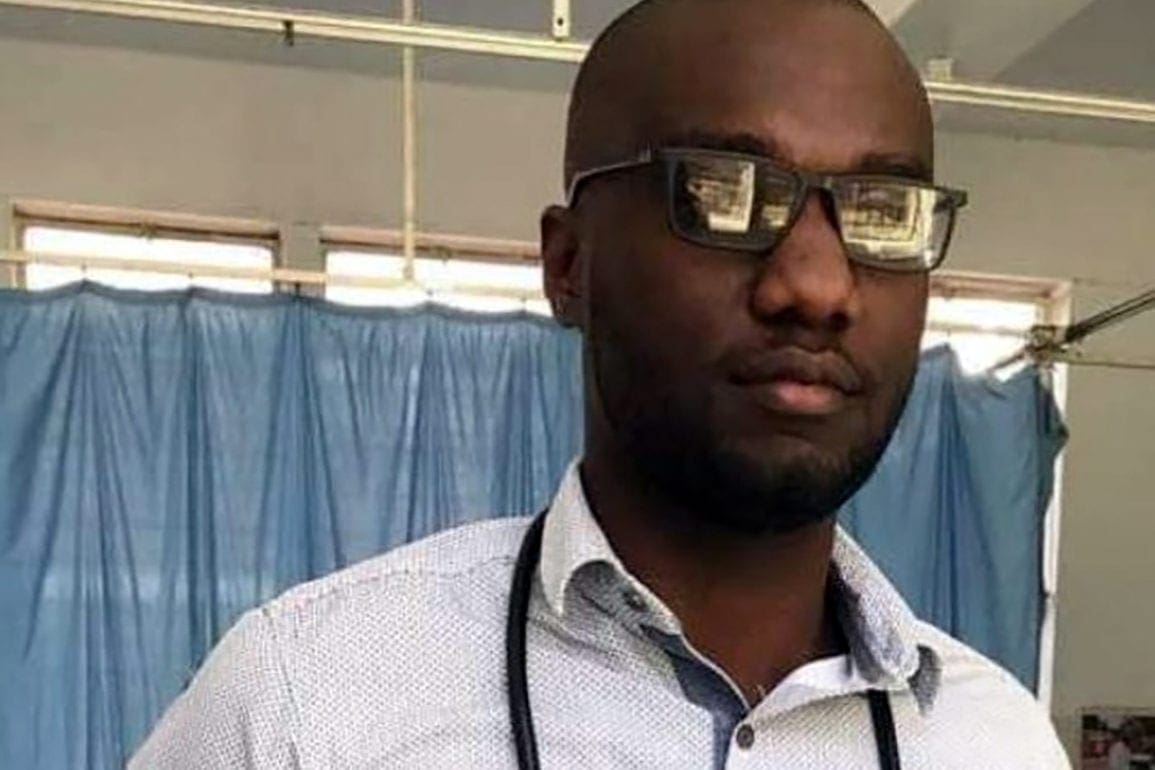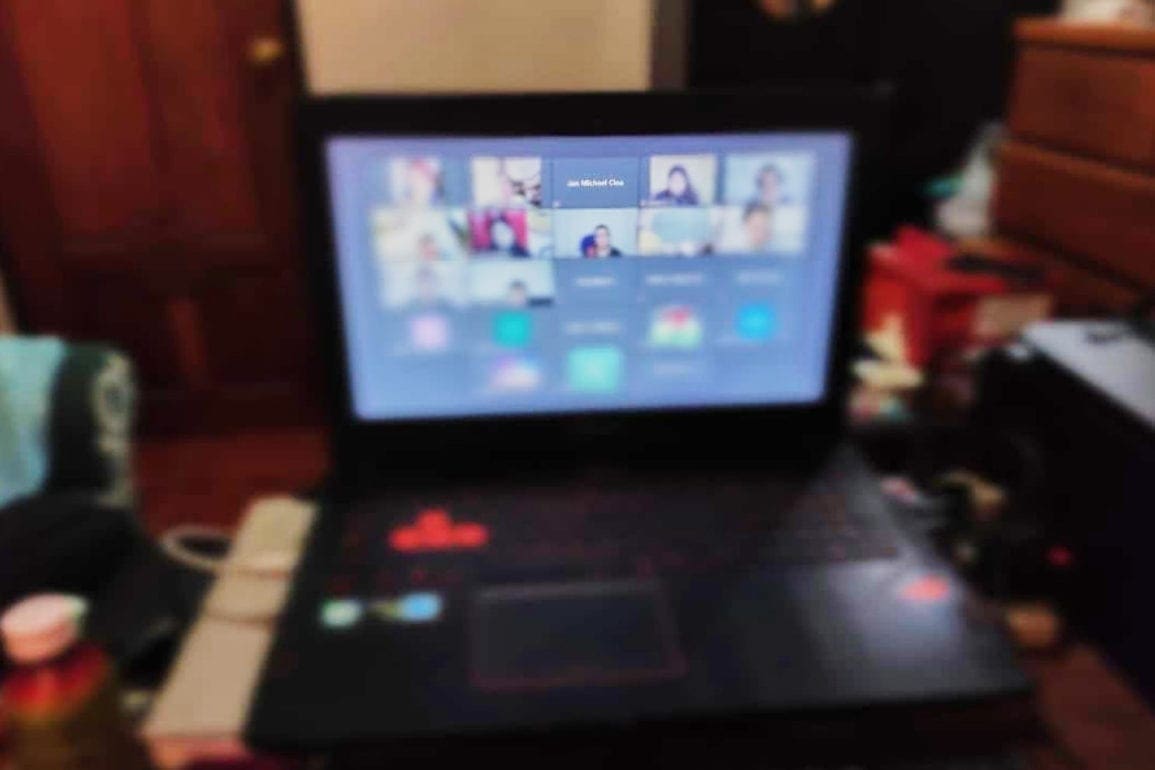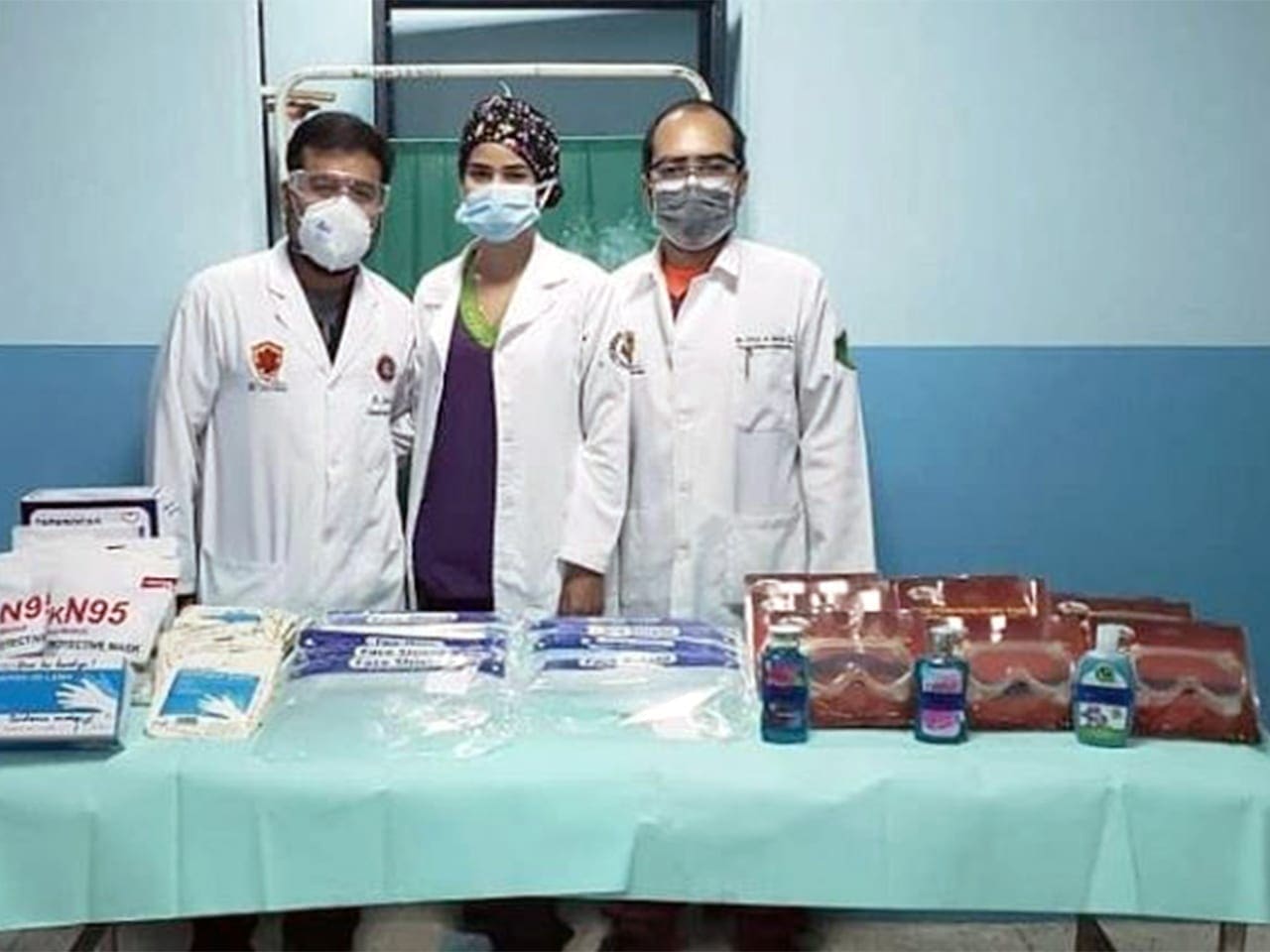Burundian refugee helping the needy amid COVID-19
Protecting refugees in Kakuma through hygiene and education
- 3 years ago
February 2, 2021

KAKUMA, Kenya — Small white houses dot the semi-arid landscape in Kenya’s Turkana region.
Nearly 200,000 refugees go about their daily business in the Kakuma refugee camp, listed as the largest refugee camp in the world by Refugee Council USA. Many, gripped by poverty, live in cramped and squalid conditions.
That’s where my life in Kenya began. And, when COVID-19 hit Kenya, I was gripped in fear over the pandemic’s potential to ravage the camp.
I knew I had to do something.
According to the United Nations High Commissioner for Refugees (UNHCR), political instability and violence have forced more than 300,000 people to flee Burundi to neighboring African countries.
Many of us, myself included, are in the Kakuma refugee camp with other displaced people from across Africa. Our stories are all different, but they share a common thread: devastation and escape.
My escape is still vivid in my mind.
I was in the middle of my chemistry studies at the University of Burundi before I ran. My life had turned into my worst nightmare.
I was receiving death threats from relatives of my late mother who seized our home in Burundi. The terror was indescribable. I never anticipated threats from my own family.
I became someone on the run not knowing where I will end up or what the next minute will hold for me.
Opportunity in Kakuma
After arriving in Kakuma in 2013, I knew what I wanted. I wanted to make my own money rather than relying on humanitarian aid for everything I needed.
I evaluated the camp and decided to start a soap-making business. I requested aid from the Lutheran World Federation’s humanitarian branch and an organization in Kakuma to enroll in a 10-day soap-making course.
I then got a startup loan of $9.04 from a close friend and former schoolmate in Burundi to buy chemicals and make my first batch of soap in 2015. Since then, I have focused on my business and strive to help those who can not afford cleaning products at the camp.
My business has evolved over the past five years, and with COVID-19 in Kenya, I knew how to help my fellow refugees.
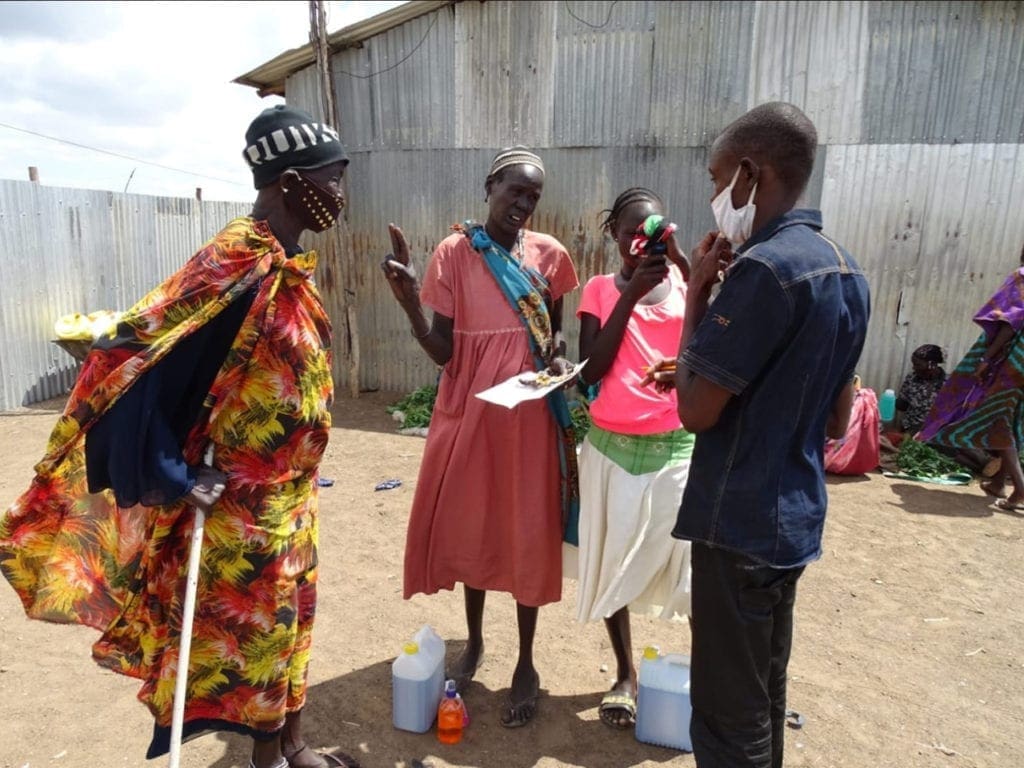
A sense of community
Water is limited to public pumps, meaning physical distancing and good hygiene — the cornerstones of the World Health Organization’s coronavirus guidelines — are near impossible.
Soap is vital during a pandemic. I knew the only way I could help my fellow refugees was to increase production by nearly 75 per cent to meet the demand of every refugee in Kakuma and the nearby Kalobeyei Integrated Settlement.
But not everyone in the camp could afford soap. Many are living in deplorable conditions and depend on humanitarian agencies for their daily needs.
So I lowered the prices and gave free soap to the vulnerable population.
It has been my duty to ensure they can access this necessary commodity to protect their lives, many of which are already in agony.
With the virus ravaging the world, refugees have also been afraid.
Alongside distributing and selling soap, I have endeavored to educate them on the importance of handwashing amid the pandemic.
Now, most of them ensure they follow all the Ministry of Health and WHO guidelines.
In Kakuma, there are so many people participating in the fight against COVID-19, whether it is mask-making or spreading awareness about the virus. It makes me happy to see all this happening because we are all working to protect our people.
I believe this has helped to reduce the spread of the virus at this camp.
But, sadly, by the end of 2020, Kakuma had 341 confirmed cases of COVID-19 and had suffered 10 deaths.
Growing a business
I have a diploma in chemistry and used to work for a chemical company in Burundi before I fled to Kenya.
I used those skills to establish a range of products including soaps, bleach, and shampoo. All my products are certified by the Kenya Bureau of Standards meaning they are all safe to be used by humans and have no harmful contents.
Everything comes from natural products. The hand sanitizer is made out of aloe vera I planted in my workshop and outside my house.
I started with only two types of soap and two paid staff members. Now, we make 14 types of soap and have 42 employees. Eighteen are from the host community, and 24 are from the Kakuma camp and Kalobeyei Integrated Settlement.
However, I am not the only local soap merchant. I want all of us to help our community as well as help ourselves, and that’s why I offer classes to teach people how to make cleaning products.
I want to mentor women and our younger people so they can have an opportunity to become self-reliant and improve their lives as I did.
Life isn’t easy in a refugee camp. Life here is sometimes full of agony as we fight battles from the past. The trauma we encounter before finding peace in Kenya still haunts us.
Many youths in the refugee camps have turned to drugs to escape their past. I try my best to educate our young to shun these harmful activities by spending more time working in small businesses.
I believe the past should be left behind and the focus shifted to the bright future ahead of all of us. We are all trying our best, and I aim to help the community in any way possible and am relieved to see many helping our most vulnerable.
Hope for the future
I’m now 37-years-old and married with two young sons. More than anything, I long for them to have a bright future far from the trauma I encountered when I was young.
The host community has been a blessing for us. We are treated as equals. Opportunities are shared, and that’s why my soap business continues to grow.
I am committed to creating employment opportunities for people from both the camp and the host community. It’s the only way I can pay back all the kindness I have received from all of them since the day I first arrived in Kakuma refugee camp in 2013.
My experience of working on the front line of the coronavirus pandemic in the Kakuma refugee camp has taught me lessons that I think every government should learn.
Serving others has helped me in restoring my sense of dignity.
My wish is we should be kind to one another during these difficult times. You never know what others are going through behind closed doors.

